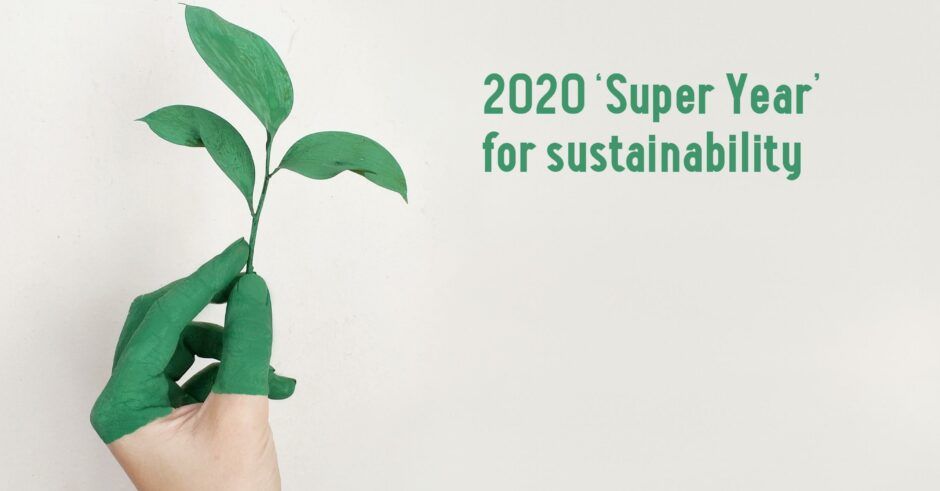Take note! 2020 is becoming known as the ‘super year’ for sustainability commitment and action. Not only is 2020 the ten-year mark for reaching the United Nation’s Sustainable Development Goals for 2030 but we are seeing more and more that current commitments aren’t changing our course towards a global climate emergency. Recent reports from the World Meteorological Organisation and the UN Environment Programme are fairly blunt. The summary of findings are startling as countries collectively failed to stop growth in global greenhouse gas emissions, meaning that deeper and faster cuts are now required. However, let’s not talk generalities here but the imperative for your organisation. It’s not simply climate change that is driving a new 2020 mindset and business strategy for all companies.
Sustainable organisations are no longer just ‘the right thing to do’ but is good business and a competitive advantage. Brand, reputation, customer perception and legally aligning with environmental legislation/reporting is paramount to survive in the new hyper-transparent, environmentally-aware business landscape.
Cutting through the hype
We’ve seen all the hundreds of news headlines about the climate emergency, Extinction Rebellion, Greta Thunberg, and much more. Now in the business arena, we’re seeing the word ‘sustainability’ pop up everywhere from sustainable supply chains, sustainable business, sustainable investment, even climate change steering committees. There can be quite a knee-jerk reaction from businesses but without a deep understanding of the problem statement and a clear roadmap for change.
Let’s cut through any confusion and remind ourselves that ultimately what a sustainable business is all about is Charles Darwin’s famous quote: ‘It is not the strongest that survives, nor the most intelligent. It is the one that is most adaptable to change.’ This needs to be our businesses now.
Sustainability, in its most basic definition, is about meeting the needs of the present without compromising the needs of the future. How this translates to businesses is essentially companies incorporating social, environmental, as well as economic, ‘value’ into core strategy and operations. This is otherwise known as the Triple Bottom Line of people, planet, and profit. This is not just a new accounting framework but is about long-term corporate survival. Sustainability is quite simply defined as ‘future economic viability’ if companies want to stay in business. It’s short-term vs long-term vision.
It’s becoming clear that being a sustainable business is not just an environmental or political gesture. Just take the quote from Malek Sukkar, CEO of Averda UK, saying, ‘The consumer has to be the one that forces everyone’s hand, to say ‘I will not buy from you unless you have a sustainability policy and a clear transparency on the whole supply chain of the product that I’m buying.’ There is also the striking quote from former CEO of Unilever, Paul Polman: ‘Why should the citizens of this world keep companies around whose sole purpose is the enrichment of a few people?’ Business must now move away from historically narrow CSR (Corporate Social Responsibility) initiatives to a new ESG (Environmental Social Governance) strategy.





